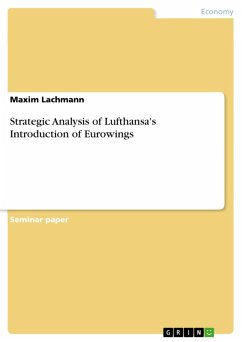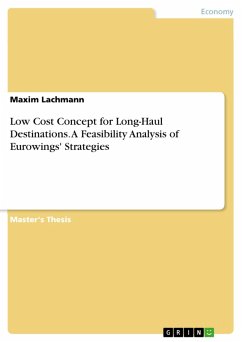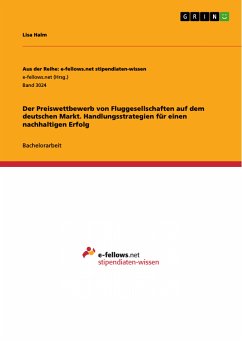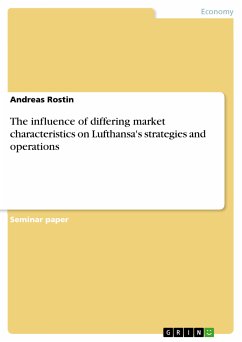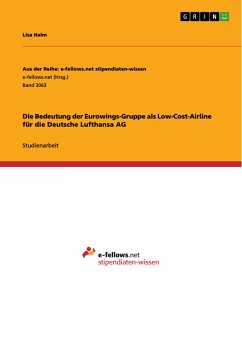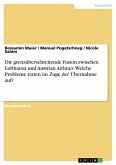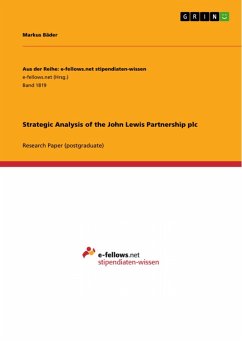Seminar paper from the year 2015 in the subject Business economics - Operations Research, grade: 1,7, , language: English, abstract: The aviation industry has changed in the recent years rapidly. Twenty to thirty years ago the aviation was too expensive for the most people and a network of international air connections often did not exist. Nowadays the aviation belongs almost to an everyday business, whether professionally or privately. At the end of the 70s there was an air traffic revolution, the concept of the low cost carrier (LCC) started. The LCC is a provider of the basic products, such as low service on board, seat comfort and free baggage drop off. 1 The first LCC was the southwest airlines from the USA. Up to the 90s Southwest offered LCC connection in US; without competitors in this business area. In 1990 the Irish airline Ryanair was founded and was the first LCC in the European (EU) area. The airlines are facing new challenges: more clientele, more fair flight prices in comparison to the competition and in addition high margins. For a long time such scheduled airlines like LH Group, KLM- Air France and British Airways-Iberia were the representative airlines in the EU. People have spent a lot of money for having a full service on Board (luggage, food, etc.) and were often dissatisfied about constantly rising prices for the flight tickets. With the origin of LCC, the market has changed enormously. Yearly scheduled airlines announce customer decline and decreasing profits. What is the reason for that? Are the LCC responsible for it? Do the scheduled airlines have to rethink their strategies to be still competitive in the market?
Dieser Download kann aus rechtlichen Gründen nur mit Rechnungsadresse in A, B, BG, CY, CZ, D, DK, EW, E, FIN, F, GR, HR, H, IRL, I, LT, L, LR, M, NL, PL, P, R, S, SLO, SK ausgeliefert werden.

